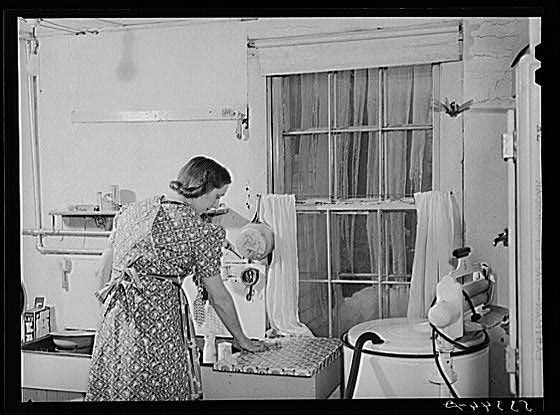5. There were a lot of bad cooks around. These days, people who don’t like to cook, or aren’t good at it, mostly don’t. They can serve a rich variety of prepared foods, and enjoy takeout and restaurants. Why would you labor over something you hate, when someone else will sell you something better for only slightly more than it would cost you to make something bad?My mother was a pretty good cook by the time I was old enough to mourn the change from homemade white sauce to Campbell’s cream of whatever soup. But my dad told me a secret: she only became good with practice, and only because she had to. She’s now an excellent cook. And so am I, but I still made an easy tuna casserole while reading this article because I’m alone and I’m tired of sandwiches. Read the rest of the rationales behind the recipes we now make fun of, at BloombergView.
In 1950, the answer was “because we’re not made of money.” A restaurant meal was a special treat, not a nightly event, and prepared foods were not so widely available, in part because women tended not to work, but also because food processing technology was [not] so advanced. So women had to cook whether they liked it or not. Many of them didn’t like it, so they looked for ways to reduce the labor involved. And it’s far from obvious that what they did with those shortcuts was worse than what they would have done without them.
Friday, November 6, 2015
The Economics Behind Grandma's Tuna Casseroles
We’ve
had plenty of posts on the unfortunate cookbooks and magazine recipes
of the mid-20th century. Many of those Jell-o/Miracle Whip/Campbell’s
Soup concoctions were developed to sell those brands, but some of them
became staples of the suburban kitchen. You have to wonder why. Megan
McArdle gives us six answers that make sense to those of us who grew up
in mid-20th century America. For example:


No comments:
Post a Comment